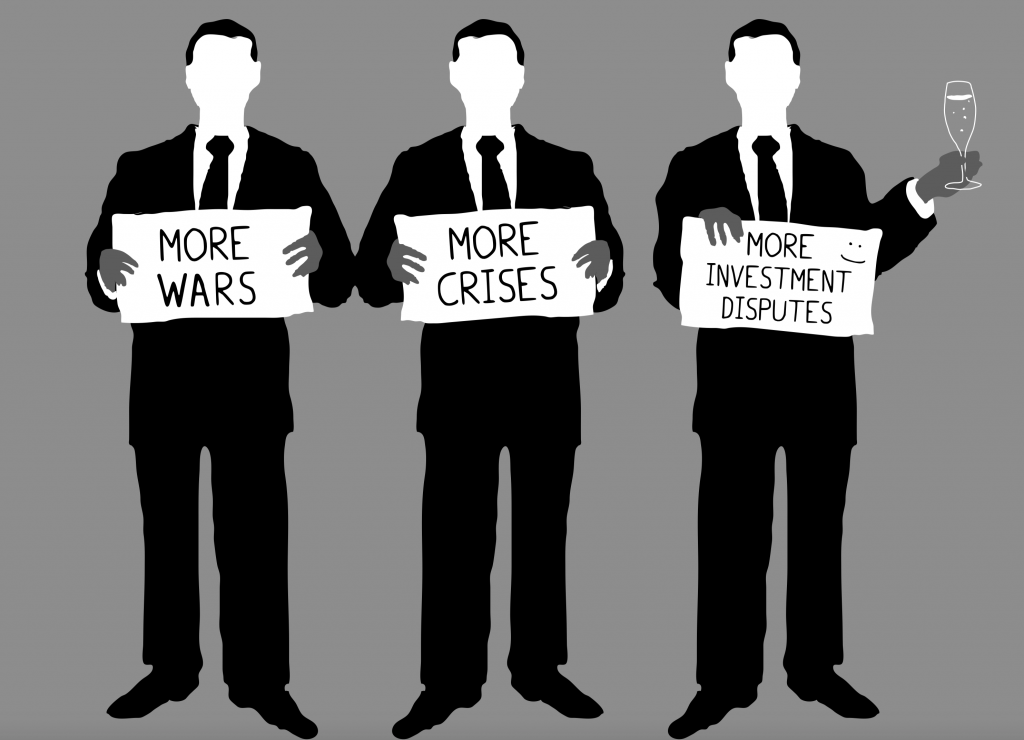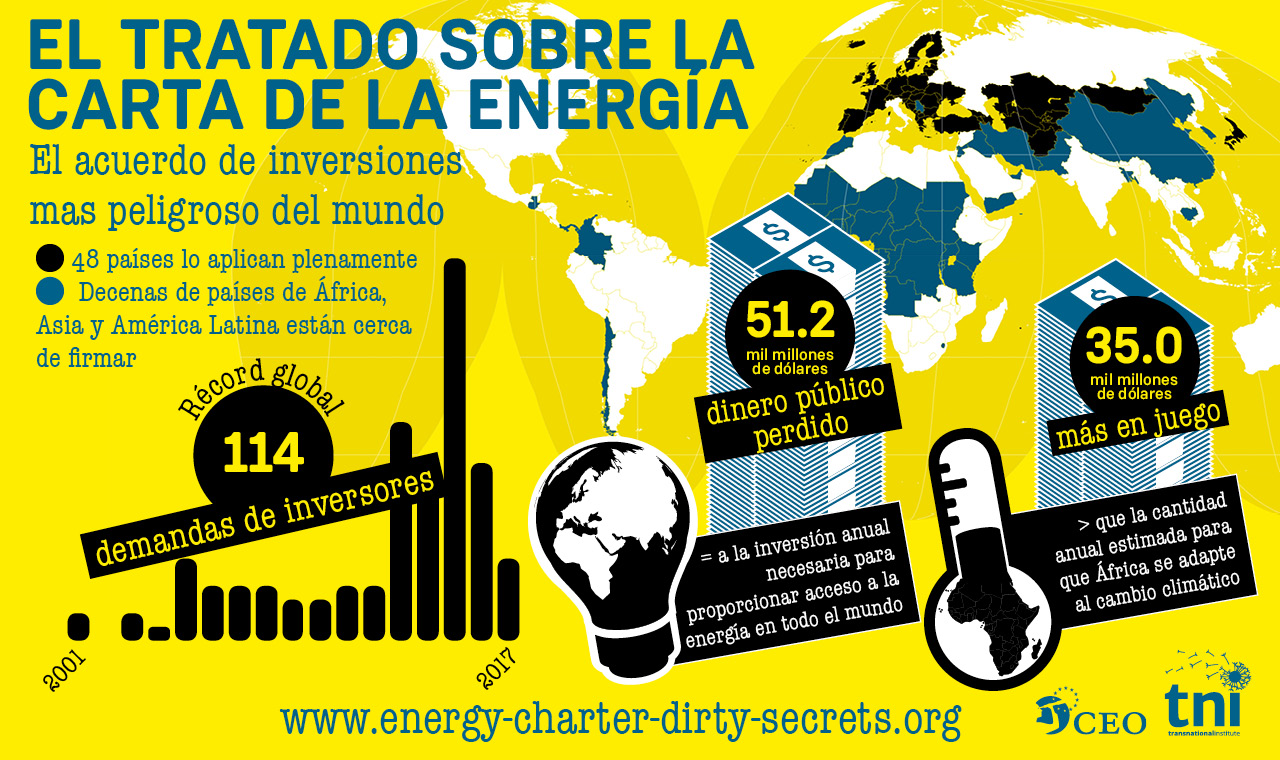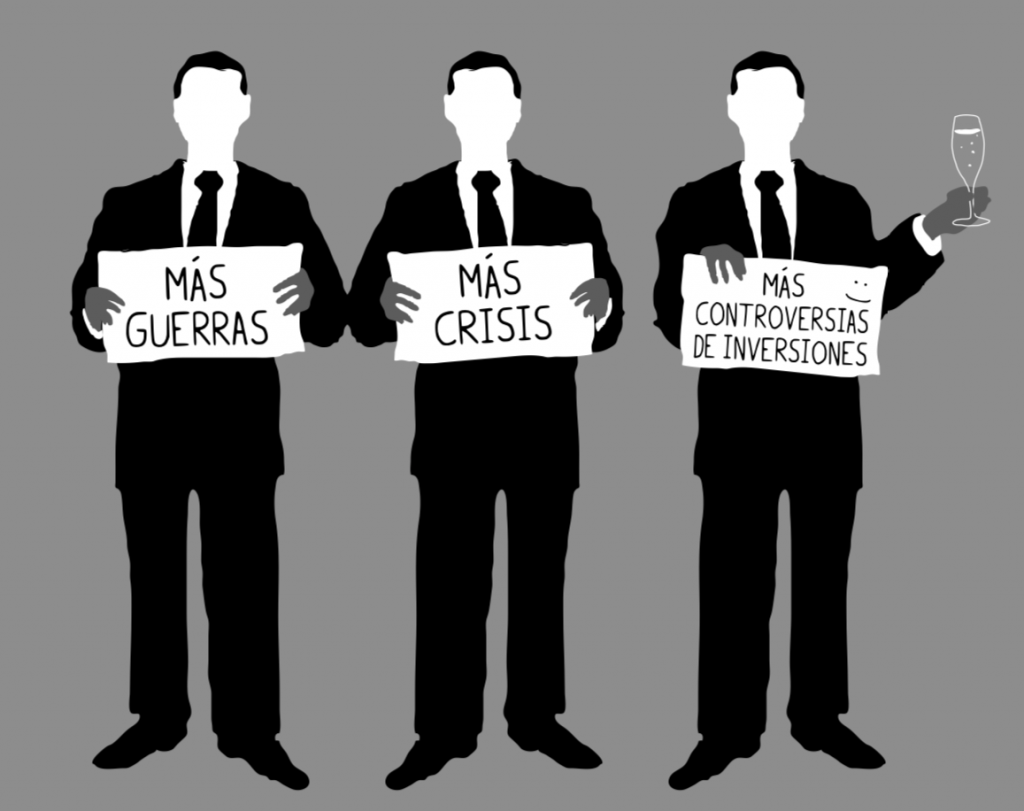|
Dear reader,
This month marks 25 years since the South African election of 27 April 1994. 20 million South Africans, the majority casting ballots for the first time, voted with hopes of a more politically and economically inclusive society.
South Africa’s fortunes have been decidedly mixed in the meantime. Among many struggles that continue is the struggle against corporate interests. In this long-read from TNI’s 2017 State of Power, Nomhle Mbutuma talks about the resilience of her people in Pondoland, fighting for their land and livelihoods against corporate mining interests. For more, have a listen to TNI’s latest podcast, on the fight against corporate impunity in South Africa and elsewhere in the world.
|
|
|
|
|
|
|
|
|
|
Between 1-5 April representatives of around 100 countries were meeting in New York to talk about investor-state dispute settlement (ISDS). ISDS is a legal instrument that multinationals can use to sue governments for billions. External experts and observers fear that the new negotiations will amount to ‘old wine in new bottles’. They believe that those who benefit from this instrument (powerful states and top lawyers from the ISDS sector) are controlling the debate.
Find out more.
|
|
|
|
|
|
|
|
|
|
|
A new movement of Dutch farmers and citizens is emerging. They want to support a type of agriculture that does not damage the environment, enriches the life of farmers and citizens, and produces healthy food.
This desire is expressed through a vast array of initiatives. It includes growers who allow citizens to undertake their harvesting, dairy farmers who plant trees and herbs in the field, cereal farmers who sell directly to local bakers, farms in which citizens become shareholders, and many more.
Read more about the land politics behind the Dutch agroecology movement
|
|
|
|
|
|
|
|
|
|
|
In 2012, in response to the repossession of over 1,000 streetlights from their city, citizens from Highland Park, Michigan came together to form Soulardarity. Their goal? to organise for community-owned solar street lights, energy production and equitable development.
Find out more about this community’s activism as part of the growing call in the United States for a Green New Deal to tackle climate change, economic inequality and racial injustice.
|
|
|
|
|
|
|
|
|
|
|
|
This episode of the State of Power podcast outlines some of the violations against people and the environment, perpetrated by Transnational Corporations in South Africa: Cases such as the massacre of protesting miners at the Marikana mine in August 2012, and ongoing attempts to evict rural communities in Pondoland from their land to facilitate titanium mining serve to underline the need for a binding international legal mechanism.
Subscribe to State of Power on Spotify, TuneIn or AudioBoom
|
|
|
|
|
| Here’s what we’re reading |
|
Interested in China’s Belt and Road initiative? Keep an eye out for the upcoming TNI report on the subject. In the meanwhile, here’s what TNI ally Corporate Europe Observatory (CEO) has found out about China's growing trail of think tanks and lobbyists in Europe.
Interested in exploring how tech companies want to control every aspect of what we do, for profit? Here’s the guardian’s review of a “ bold, important book (that) identifies our new era of capitalism”
|
|
|
|
|
|
|
Get 15% discount in TNI's Bookshop!
'TDIC59U2' voucher takes 15% off the price (not including the shipping). Valid until 30th of June 2019.
|
|
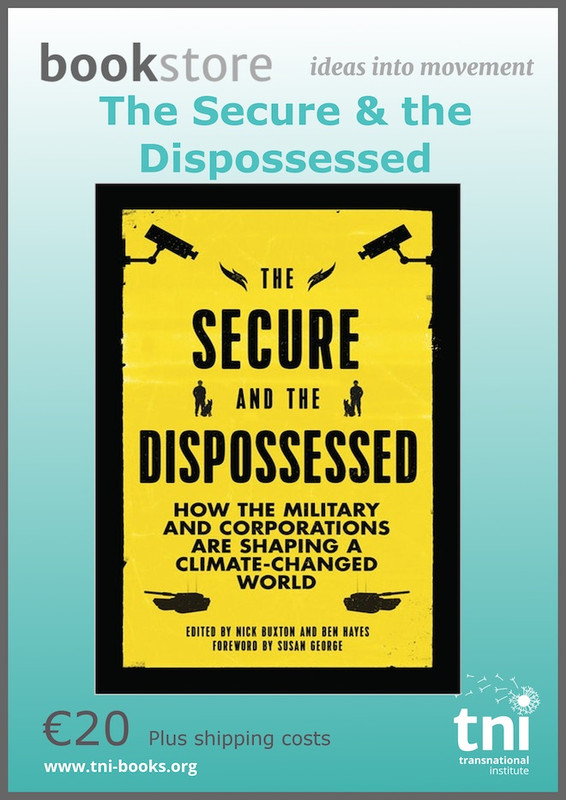 |
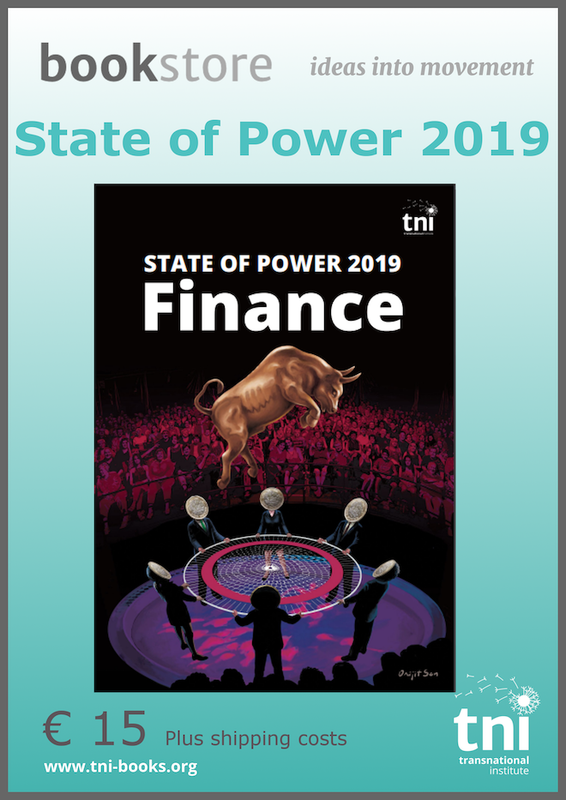 |
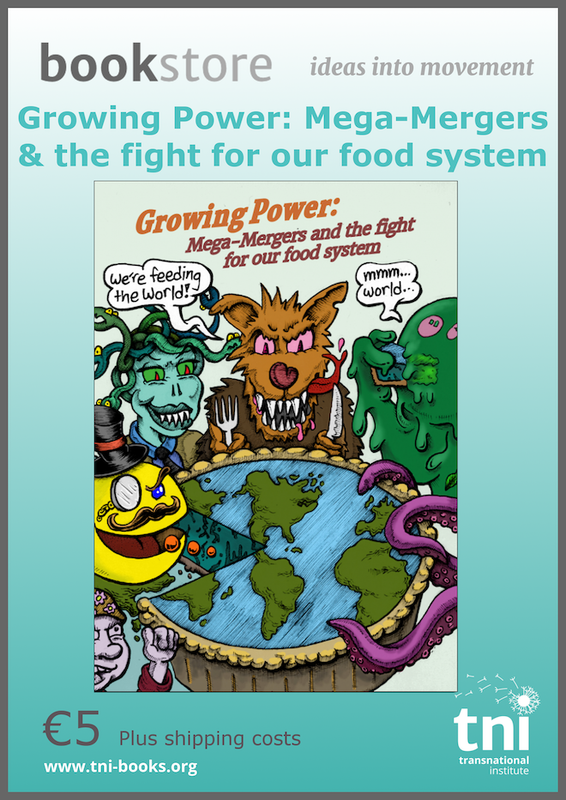 |
|
|
|
| |
|
|
|
"If only we had the resources of those we are up against, we could change the world!" - TNI President Susan George
Every amount will make an impact towards the Transnational Institute. You can choose to make a once off gift or ongoing donation of support.
|
|
|
|
|
| |
|
|
Nota - A partir de enero de 2019, nuestro boletín se enviará en dos versiones separadas: una en inglés y otra en español. Si quieres recibir el boletín en español, tendrás que darte de baja de esta lista y suscribirte en esta.
Amigos y amigas del TNI,
Sabemos lo que debemos hacer para resolver la crisis climática: mantener el carbón, el petróleo y el gas bajo tierra. Pero la industria de los fósiles tiene un arma secreta para seguir cocinando el planeta: el Tratado sobre la Carta de la Energía (TCE). El Tratado permite que las empresas demanden a los Gobiernos ante tribunales privados y ha facilitado que se paguen miles de millones de dólares de los contribuyentes a grandes empresas de energía.
|
|
|
|
El Tratado, que ya se está utilizando para neutralizar toda medida contra los combustibles fósiles, supone una amenaza para la lucha contra el cambio climático y una transición energética justa. España es el país más demandado en virtud de ese Tratado, con un total de 40 casos, por un valor que supera los 9400 millones de dólares.
¿Te parece increíble que esto pueda estar sucediendo sin ningún tipo de escrutinio público? ¡Descárgate nuestro último informe y compártelo!
|
|
|
|
|
|
|
|
A principios de este mes, representantes de unos 100 países se reunieron en Nueva York para hablar sobre el sistema de solución de controversias entre inversores y Estados (ISDS). El ISDS es un instrumento jurídico al que pueden recurrir las multinacionales para demandar a los Gobiernos y exigirles miles de millones de dólares, precisamente como el que se prevé en el Tratado sobre la Carta de la Energía. Sin embargo, observadores externos temen que las nuevas negociaciones se limiten a “poner vino nuevo en botellas viejas”, ya que consideran que quienes más se benefician con este instrumento están controlando el debate. ¿Quieres saber más? Aquí tienes todas las claves.
También te animamos a firmar esta petición para poner fin a estos tribunales.
|
|
|
|
|
|
|
|
|
|
|
Un ciudadano boliviano de Santa Cruz y afincado en España regresaba de un viaje a Bolivia para visitar a la familia cuando fue detenido en el aeropuerto de Barcelona por transportar en su maleta 11 bolsitas que contenían hojas de coca para la práctica tradicional del pijcheo (masticado de hoja de coca). La Fiscalía le pedía al acusado cuatro años de prisión y una multa de 2000 euros. La Fundación ICEERS, con el apoyo de organizaciones aliadas como el TNI, le asistió en la defensa y aquí te explicamos cómo terminó el caso, que es un ejemplo de incidente jurídico cada vez más frecuente en toda Europa.
|
|
|
|
|
|
|
|
|
|
|
El trabajo del TNI sobre el proyecto de nuevos enfoques en políticas y prácticas de reducción de daños sigue adelante. Os animamos a consultar el último informe publicado en el marco del proyecto, centrado en la regulación del cannabis en España.
|
|
|
|
Si valoras el pensamiento crítico y las alternativas reales, ¿por qué no realizar una donación? Todas las aportaciones, por pequeñas que sean, suman y son muy bienvenidas. ¡Gracias!
|
|
| |
|
|
|
|
| | | | | | | | |



